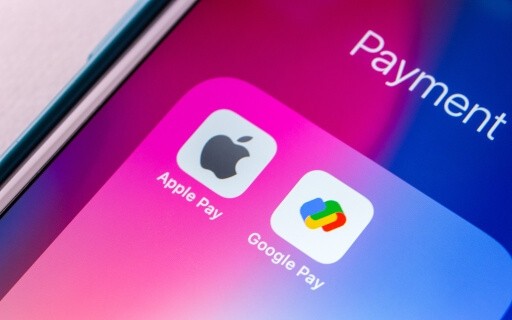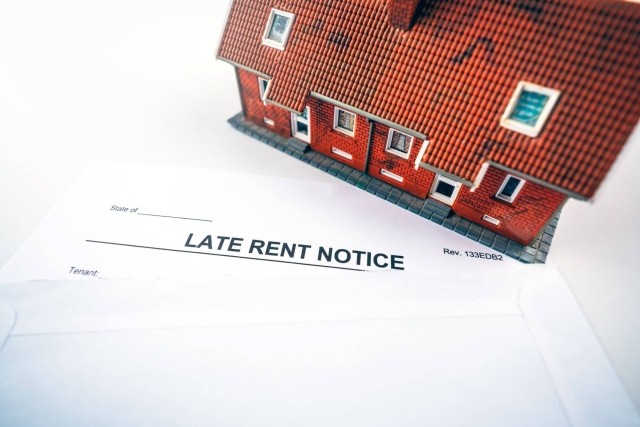
Being a landlord means figuring out how to collect rent from your tenant safely, quickly, and efficiently. Whether you accept full or partial rent payments, there are many methods to choose from, so you may be wondering which is best. While there is no explicit right or wrong answer, you’ll want to select the one that works well for you and the renter. Between credit cards vs. ACH vs. checks, explore how they compare, review their pros and cons, and discover a few other alternative payment options.
What is an ACH payment?
You probably know what checks and credit cards are, but what about ACH? An ACH payment, which stands for Automated Clearing House, is an electronic check (e-check) that draws money directly from the tenant’s checking account and then transfers it to the landlord’s bank account.
The National Automated Clearing House Association (NACHA) develops and manages the entire ACH network. This online network governs all ACH money and data transfers, transactions, and processes nationwide. However, there is an initial setup to perform ACH payment transfers, and your tenant must have funds available in their checking for the transaction to succeed.
Five Primary Differences Between Credit Card vs. ACH vs. Checks
Though each payment method is viable, knowing how they compare can help you determine which is best for collecting rent from your tenants. Here are five main differences between credit cards, ACH payments, and checks for you to consider:
1. Costs and fees
- Credit card:Credit cards charge a fee every time your tenant uses one to pay their rent. You may have to account for several fees, such as payment processor, interchange, and assessment fees. Depending on the credit card network, you can expect to be charged a fee of 1.4 to 3.5 percent. Credit cards can be the most expensive option.
- ACH: Of the three payment methods, ACH is the most cost-effective. ACH transactions charge low processing fees, with the average price usually between 26 cents and 50 cents. The savings you can gain from using this process add up over time.
- Checks: Like ACH payments, paper checks are a relatively inexpensive option. According to the 2015 Payments Cost Benchmarking Survey from the Association for Financial Professionals (AFP) , the average cost for sending and receiving a check is $3.00.
2. Delivery speed
- Credit card: By far, credit cards offer the quickest processing times. You can usually see credit card payments in your bank account within one to two business days. Fast delivery means you can promptly make critical payments, such as taxes and property repairs
- ACH: As an electronic funds transfer (EFT) system, ACH rental payments can take two to five business days to process. While comparable with checks, they are a bit faster since tenants can pay online (rather than at a physical bank).
- Checks: Checks take the longest for you to receive from your tenants because they must physically deliver them to you and deposit them into your bank. Paper checks usually take two to five business days to clear once deposited, though this time can increase depending on the check amount.
3. Security
- Credit card: Credit cards, for all their benefits, can be highly susceptible to security issues. Credit card fraud is a common problem people face, and it can affect you, your tenant, the lender, and any other related parties. Tenants must take extra precautions to protect themselves from criminals stealing their credit card numbers and using them for unlawful purposes.
- ACH: Without needing a physical check or a credit card, ACH transfers are the most secure. Because the money goes directly from one bank account to another, this electronic payment is less likely to get intercepted or disrupted by hackers. This process makes it ideal for recurring payments.
- Checks: Paper checks have sensitive and confidential bank account information, such as the routing and account numbers. If this check is lost and falls into the wrong hands, that could mean serious security complications for you and your tenant.
4. Payment guarantee
- Credit card: With credit cards, you usually only need to worry about the payment posting. Once it goes through, the funding is guaranteed. However, some factors can interfere with this guarantee of payment, such as card number change, maxed out account, stolen or lost card, etc.
- ACH: With ACH, tenants electronically submit their rental payments using bank account numbers. So long as the bank and routing numbers on both accounts are open, you can expect to receive the money faster than a paper check. As the landlord or property owner, this means a better guarantee of funds. The leading blocker is insufficient funds will stop the payment from going through to you.
- Checks: Paper checks are the least accurate due to various errors, such as unreadable handwriting, scratched digits, check bouncing, etc. With a higher error rate, there is less payment guarantee.
5. Convenience
- Credit card: With low processing times and a relatively reliable guarantee of payment, credit cards are convenient for collecting rent. Like ACH, tenants can also set up credit card autopay to send money to you every month.
- ACH: Regarding convenience and ease of use, ACH payments are the most user-friendly method. Tenants can automate these payments on a monthly schedule without having to input a card number repeatedly or go to a bank, ensuring you consistently receive your rent on time
- Checks: Like cash, paper checks require tenants to deposit them at a bank or in your hands, making this the least convenient method of the three. Inclement weather or transportation troubles can further impede your ability to receive rental payments on time.
Pros and Cons of Electronic Payments vs. Checks
Whether your tenant goes the physical route with a check or the electronic route with an ACH payment, it is essential to understand the pros and cons. Knowing their advantages and pitfalls will help you and your tenant use them more effectively:
Pros and Cons of Electronic Payments
- Pro: E-payments are faster to deliver and receive
- Pro: They are usually cheaper to use
- Pro: Automation of rent makes it more convenient and easier to manage
- Con: Electronic payments are more susceptible to online scammers and hackers
- Con: It is easier for your tenant to dispute and hold up an electronic rent payment
Pros and Cons of Checks
- Pro: Once you have the check, it is more difficult to dispute
- Pro: Less vulnerable to online hackers and scammers
- Con: Can be inconvenient for tenants to deliver in-person or through mail
- Con: Time to process checks is longer
- Con: Checks are usually more expensive to process
- Cons: Checks may bounce
Alternative Rent Collection Methods
Here are some additional ways you can collect rent from your tenant:
EFT
An electronic funds transfer (EFT) is a type of direct deposit or e-check that can help your tenants stay on top of their rent payments. With no long processes or papers to keep track of, using EFTs (Electronic Funds Transfer) can be quick and easy for you to collect rent from your tenants. Unlike credit cards, EFT payments are digitally initiated. While faster than a paper check or credit card, transactions are a little slower than wire transfers.
Wire transfers
A wire transfer is a transaction between two banks, each responsible for verifying the transfer to complete it. If your tenant uses the same bank as you, then the wire transfer is virtually instantaneous. The process should take a few minutes to complete with just a bank account number.
However, wire transfers can take a few days to fulfill if you receive a rental payment from an international bank or a bank with an outdated financial system. Despite the fast delivery of funds, wire transfers are often expensive, costing your tenant 20 to 35 dollars to send and 10 to 20 dollars to receive.
Cash
While fewer people use cash these days, it is wise to keep the option available to your tenant. While not the most convenient approach, some renters may be more traditional and like to count out the rent money they give to you. The bright side of cash is the payment guarantee. Once the tenant hands you the money, it is yours—no processing fees or waiting times.
Peer-to-peer payment apps
Many people have a peer-to-peer payment app, whether it is Zelle, Venmo, or Paypal. These apps can be great because people usually are set up on one, but they have their downsides.
An Easier Solution for Collecting Rent
No matter your choice, rent collection should be a simple process for you and your tenants. Comparing these payment methods can help you make the best decision for your needs. However, there is an even simpler option.
Apartments.com’s rent payment system is the easiest solution of all. Enjoy a hassle-free system that allows for automatic online payments. Feel at ease knowing that every payment from your tenant is safe and organized in one convenient location. And the best part about it—there are no extra or hidden fees for you as the landlord. Add your property on Apartments.com to start collecting fast, secure, and easy monthly rental payments.
Frequently Asked Questions
Which collection method is the best?
We believe ACH payments are the best for collecting rent because of convenience, speed, security, and cost. However, offering your tenants multiple payment methods is ideal in case they cannot use one and need an alternative solution.
Is an ACH payment a check?
No, an ACH payment is not a check. It is more like an e-check that shares similarities to paper checks, such as slow delivery speeds and low processing costs.











